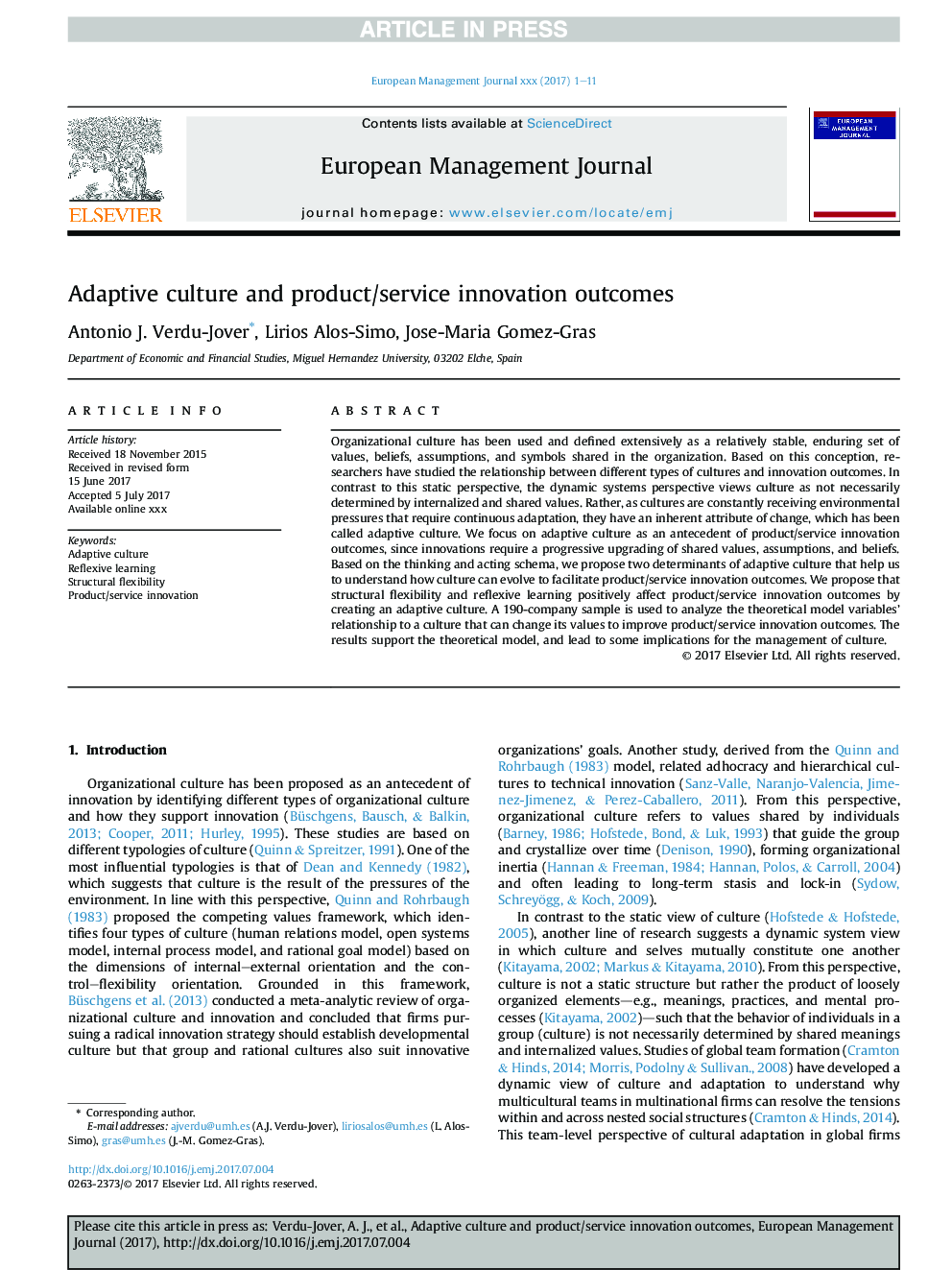| Article ID | Journal | Published Year | Pages | File Type |
|---|---|---|---|---|
| 7423507 | European Management Journal | 2018 | 11 Pages |
Abstract
Organizational culture has been used and defined extensively as a relatively stable, enduring set of values, beliefs, assumptions, and symbols shared in the organization. Based on this conception, researchers have studied the relationship between different types of cultures and innovation outcomes. In contrast to this static perspective, the dynamic systems perspective views culture as not necessarily determined by internalized and shared values. Rather, as cultures are constantly receiving environmental pressures that require continuous adaptation, they have an inherent attribute of change, which has been called adaptive culture. We focus on adaptive culture as an antecedent of product/service innovation outcomes, since innovations require a progressive upgrading of shared values, assumptions, and beliefs. Based on the thinking and acting schema, we propose two determinants of adaptive culture that help us to understand how culture can evolve to facilitate product/service innovation outcomes. We propose that structural flexibility and reflexive learning positively affect product/service innovation outcomes by creating an adaptive culture. A 190-company sample is used to analyze the theoretical model variables' relationship to a culture that can change its values to improve product/service innovation outcomes. The results support the theoretical model, and lead to some implications for the management of culture.
Keywords
Related Topics
Social Sciences and Humanities
Business, Management and Accounting
Business and International Management
Authors
Antonio J. Verdu-Jover, Lirios Alos-Simo, Jose-Maria Gomez-Gras,
